Sodium Tripolyphosphate Manufacturer and Supplier
CAS No.: 7758-29-4 | EC Number.: 231-838-7 | Molecular formula.: Na5P3O10, Na5O10P3
Sodium Tripolyphosphate
Sodium Tripolyphosphate Manufacturers, Sodium Tripolyphosphate Suppliers, Sodium Tripolyphosphate Formula, Sodium Tripolyphosphate Price, Sodium Tripolyphosphate SDS, Sodium Tripolyphosphate Exporter in Mumbai, India.
Vinipul Chemicals Pvt. Ltd is a well-established manufacturer, supplier, and exporter of high-purity Sodium Tripolyphosphate. With our extensive experience in the industry, we have earned a reputation for delivering specialty chemicals with exceptional quality and reliability. Our Sodium Tripolyphosphate, also known by its CAS number 7758-29-4, is meticulously produced using superior purity chemicals and advanced manufacturing equipment. We adhere to stringent international industry standards to ensure the highest level of product quality and consistency.
As a reputed sodium tripolyphosphate manufacturer, we understand the importance of accurate composition in specialty chemicals. Our Sodium Tripolyphosphate is precisely formulated to meet the specific requirements of our customers. As a leading sodium tripolyphosphate manufacturers in India, we take pride in our commitment to providing products with the desired composition, free from impurities. This attention to detail guarantees the effectiveness and performance of our Sodium Tripolyphosphate in various applications.
One of the key advantages of choosing Vinipul Chemicals Pvt. Ltd is the long shelf life of our Sodium Tripolyphosphate. As a prominent sodium tripolyphosphate supplier, we recognize the importance of stability and durability in specialty chemicals, and our product excels in these aspects. Customers can rely on our Sodium Tripolyphosphate to maintain its quality over an extended period, ensuring consistent performance and value for their applications. With our product, customers can confidently incorporate Sodium Tripolyphosphate into their processes without concerns about degradation or loss of efficacy.
What is Sodium Tripolyphosphate?
Sodium Tripolyphosphate is an inorganic compound with a white colour and can exist in the form of granules or crystals. It is highly soluble in water, resulting in the formation of an alkaline solution. This compound is derived through a manufacturing process that involves neutralizing a phosphoric acid solution using sodium hydroxide and sodium carbonate. The chemical formula of Sodium Tripolyphosphate is Na5P3O10, representing the sodium salt of the polyphosphate penta-anion.
Sodium Tripolyphosphate finds extensive applications in various domestic and industrial products, particularly in the formulation of detergents. Its alkaline properties and solubility in water make it an effective ingredient for cleaning purposes. Additionally, Sodium Tripolyphosphate is utilized in the food industry as a preservative and emulsifier, as well as in water treatment processes and ceramic production.
Sodium Tripolyphosphate Details
This table provides information about Sodium Tripolyphosphate, a chemical compound with the CAS No. 7758-29-4 and EC Number. 231-838-7. The table also lists various Sodium Tripolyphosphate common name and synonyms. The table contains Sodium Tripolyphosphate structure, Sodium Tripolyphosphate solubility and molecular formula. It is a white granular powder of monoclinic crystals. Sodium Tripolyphosphate pH. value is also mentioned in the table. Sodium Tripolyphosphate is commonly used in various industries in different applications. It is also used in the pharmaceutical industry for various purposes.
Specifications
| Chemical name | Sodium triphosphate |
| CAS No | 7758-29-4 |
| EC Number | 231-838-7 |
| Commercial name / Synonyms | sodium tripolyphosphate anhydrous, Pentasodium triphosphate, Sodium triphosphate, STPP, PENTASODIUM TRIPOLYPHOSPHATE, Triphosphoric acid, pentasodium salt, UNII-9SW4PFD2FZ, TRIPHOSPHORIC ACID, SODIUM SALT |
| Molecular formula | Na5P3O10 Na5O10P3 |
| Chemical Structure |  |
| Melting Point | 622 °C |
| IUPAC Name | pentasodium-[oxido(phosphonooxy)phosphoryl] phosphate |
| Component Compounds | Triphosphoric acid Sodium |
| Physical Form | White powder |
| Physical Appearance | Dry Powder / Dry Powder, Pellets Large Crystals |
| Solubility | Freely soluble in water Insoluble in ethanol |
| pH | Between 9,1 and 10,2 (1 % solution) |
| Packaging Details | 25 kg / 50 kg / HDPE packaging bags / Drum/ As per Client’s requirements |
Computed Properties
The table provides various properties of a chemical compound, including its Sodium Tripolyphosphate molar mass, four hydrogen bond acceptor counts, an exact mass and mono-isotopic mass, heavy atom counts, and a topological polar surface area. These properties are useful in identifying and characterizing the compound for various purposes in industries such as pharmaceuticals and chemicals.
| Property Name | Property Value |
| Molecular Weight | 367.86 g/mol |
| Hydrogen Bond Acceptor Count | 10 |
| Exact Mass | 367.8192786 g/mol |
| Monoisotopic Mass | 367.8192786 g/mol |
| Heavy Atom Count | 18 |
| Topological Polar Surface Area | 185Ų |
| Complexity | 241 |
| Covalently-Bonded Unit Count | 6 |
| Compound Is Canonicalized | Yes |
Related Compounds with Annotation
The table provides information on various compounds related to Sodium Tripolyphosphate along with their Compound CID, Neighbour Type, and Annotation Types Count. These compounds include sodium pyrophosphate, pentasodium triphosphate, disodium hydrogen phosphate, sodium zirconium(4+) salt, hexasodium tetraphosphate, sodiumaluminumphosphate, trisodium yttrium bis(phosphate), and several others. The compounds are represented in a 2D structure format, and the Annotation Types Count indicates the number of annotation types associated with each compound. The table offers a comprehensive overview of these compounds and their relevant details.
Sodium Tripolyphosphate Price
| Product Range | Price |
| Sodium triphosphate | Rs 620/Kg |
| Sodium tri poly phosphate ( P2O5 – 57% ) | Rs 120/kg |
| Penta sodium Tri phosphate | Rs 5004/Kg |
| STPP | Rs 118/Kg |
| Sodium tri poly phosphate – Ceramic Grade | Rs 80/Kg |
| Sodium tri poly phosphate – Technical Grade | Rs 80/Kg |
| Sodium tri poly phosphate – Food Grade | Rs 300/Kg |
| Sodium Hexametaphosphate | Rs 170/Kg |
| Tetra Sodium PyroPhosphate | Rs 200/Kg |
| Sodium Acid Pyrophosphate | Rs 150/Kg |
| Mono Ammonium Phosphate | Rs 95/Kg |
| Di Ammonium Phosphate | Rs 637/Kg |
Prices shown above are provisional prices and may change due to different market conditions for latest prices
Call Us
+91-932 223 1817
Mail Us
business@vinipulchemicals.com
Types of Sodium Tripolyphosphate
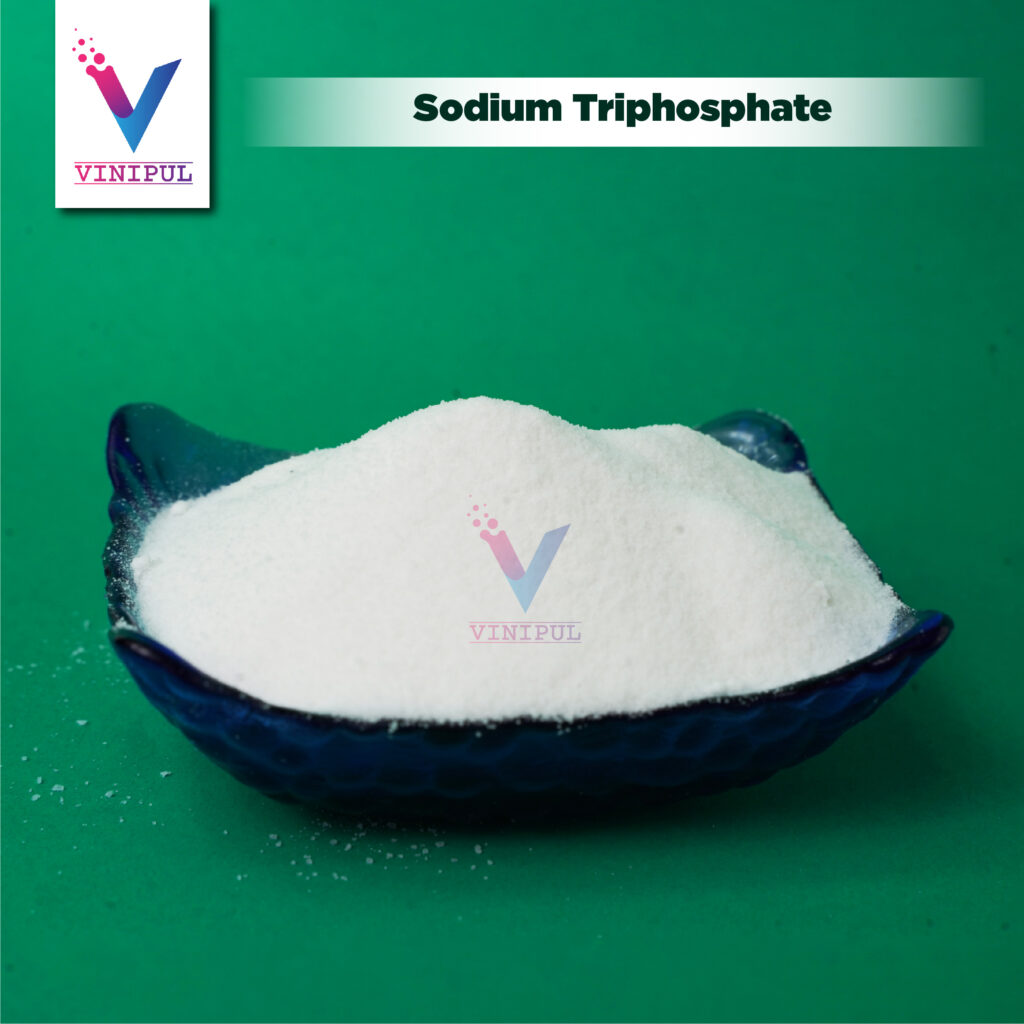
Sodium triphosphate
Sodium triphosphate is a type of Sodium Tripolyphosphate that is widely used in various industries. It is an inorganic compound with the chemical formula Na5P3O10. Sodium triphosphate is typically white in colour and exists as granules or crystalline solids. It is highly soluble in water, forming an alkaline solution. This type of Sodium Tripolyphosphate is utilized in detergents, water treatment, and as a dispersing agent in various industrial processes.

Sodium tri poly phosphate (P2O5 - 57%)
This variant of Sodium Tripolyphosphate contains approximately 57% phosphorus pentoxide (P2O5) in its composition. It is a highly concentrated form of Sodium Tripolyphosphate and is commonly used in specialized applications. This grade of Sodium Tripolyphosphate finds applications in industries such as ceramics, where the higher concentration

Penta sodium Tri phosphate
Penta sodium Tri phosphate is another name for Sodium Tripolyphosphate. It is called “penta” because it contains five sodium ions (Na+) in its structure. This type of Sodium Tripolyphosphate is extensively used as a water softener and detergent builder due to its ability to sequester calcium and magnesium ions. Penta sodium Tri phosphate is widely employed in household cleaning products, laundry detergents, and industrial cleaning formulations.

STPP
STPP stands for Sodium Tripolyphosphate, which is the abbreviated name for this compound. It is commonly used in various industries, including detergents, ceramics, and food processing. STPP is known for its ability to improve the cleaning efficiency of detergents by preventing the redeposition of dirt and stains on fabrics. In the ceramics industry, it acts as a flux, enhancing the melting properties of ceramic materials during the firing process.

Sodium tri poly phosphate - Ceramic Grade
This specific grade of Sodium Tripolyphosphate is specially formulated for ceramic applications. It is designed to meet the specific requirements of the ceramic industry, such as promoting glaze adhesion, controlling viscosity, and improving the overall performance of ceramic materials during production. Sodium tri poly phosphate – Ceramic Grade

Sodium tri poly phosphate - Technical Grade
Sodium tri poly phosphate – Technical Grade refers to a grade of Sodium Tripolyphosphate that is primarily used in industrial and technical applications. It may not meet the stringent purity requirements of other grades, making it suitable for applications where exacting purity standards are not essential. Technical Grade Sodium Tripolyphosphate

Sodium tripolyphosphate food grade
Sodium tri poly phosphate – Food Grade is a high-purity grade of Sodium Tripolyphosphate that is specifically intended for use in the food industry. It complies with strict food safety regulations.
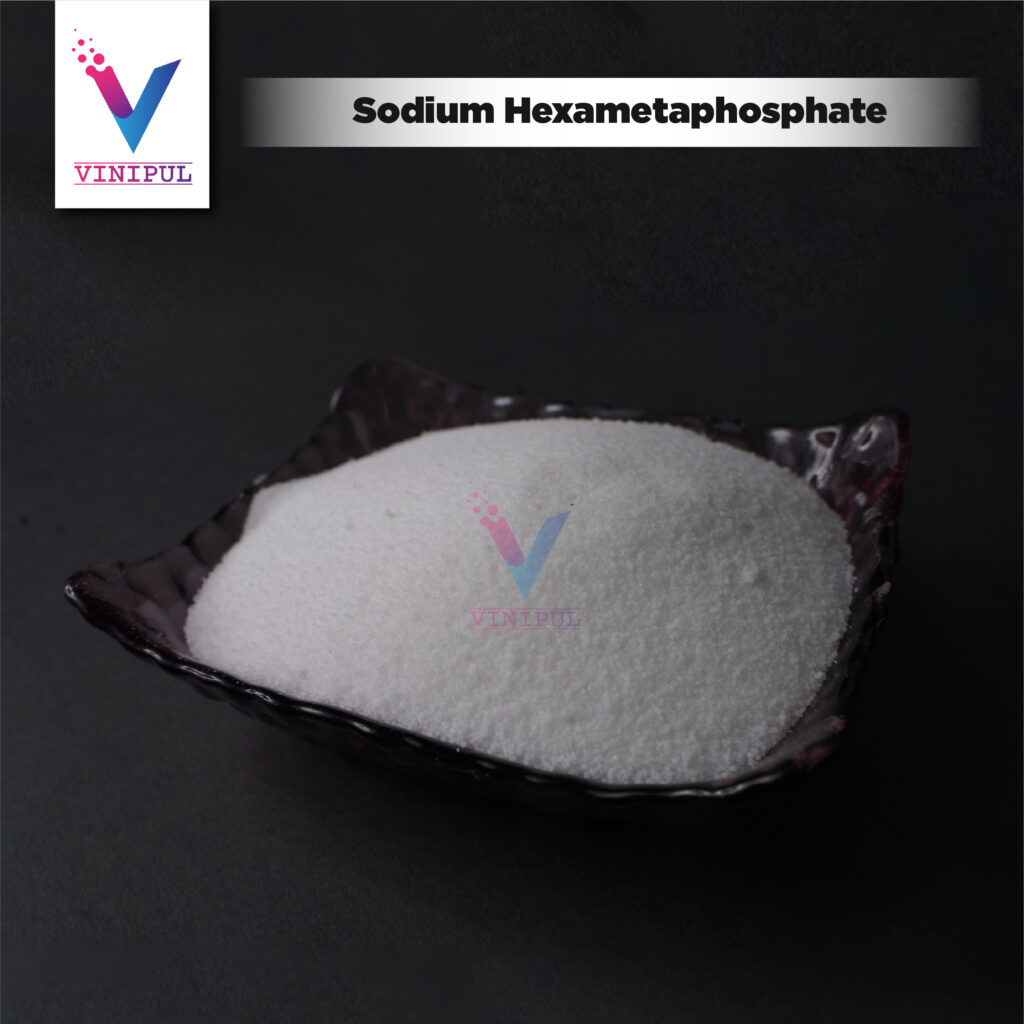
Sodium Hexametaphosphate
Sodium Hexametaphosphate is a sodium salt of polyphosphoric acid. It is commonly used as a sequestrant, water softener, and food additive. It is also used in detergents, ceramics, and as a dispersing agent.

Tetra Sodium Pyrophosphate
Tetra Sodium Pyrophosphate, also known as TSPP, is a sodium salt of pyrophosphoric acid. It is used in a variety of applications including food processing, water treatment, and as a buffering agent in chemical reactions.
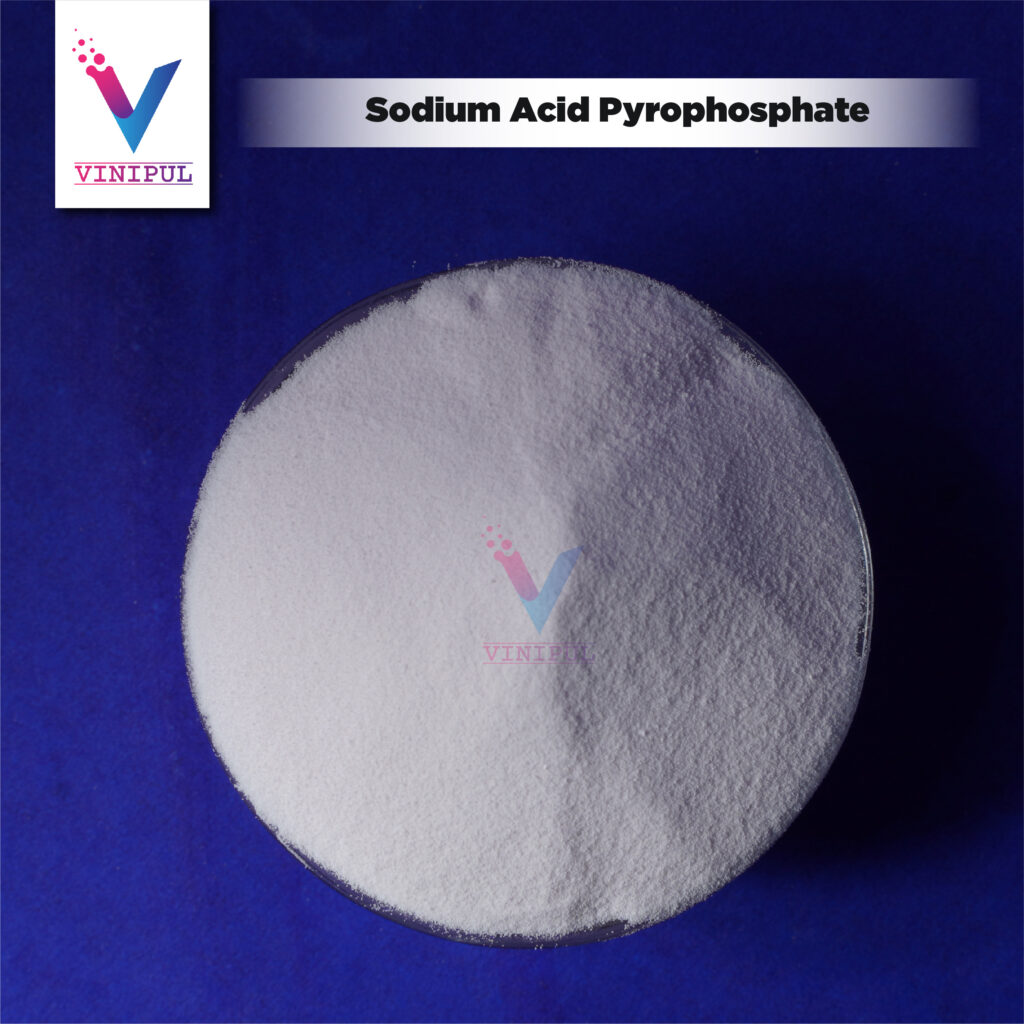
Sodium Acid Pyrophosphate
Sodium Acid Pyrophosphate, also known as SAPP, is a sodium salt of pyrophosphoric acid. It is commonly used as a leavening agent in baked goods, such as cakes and bread. It helps dough rise by releasing carbon dioxide gas when heated.
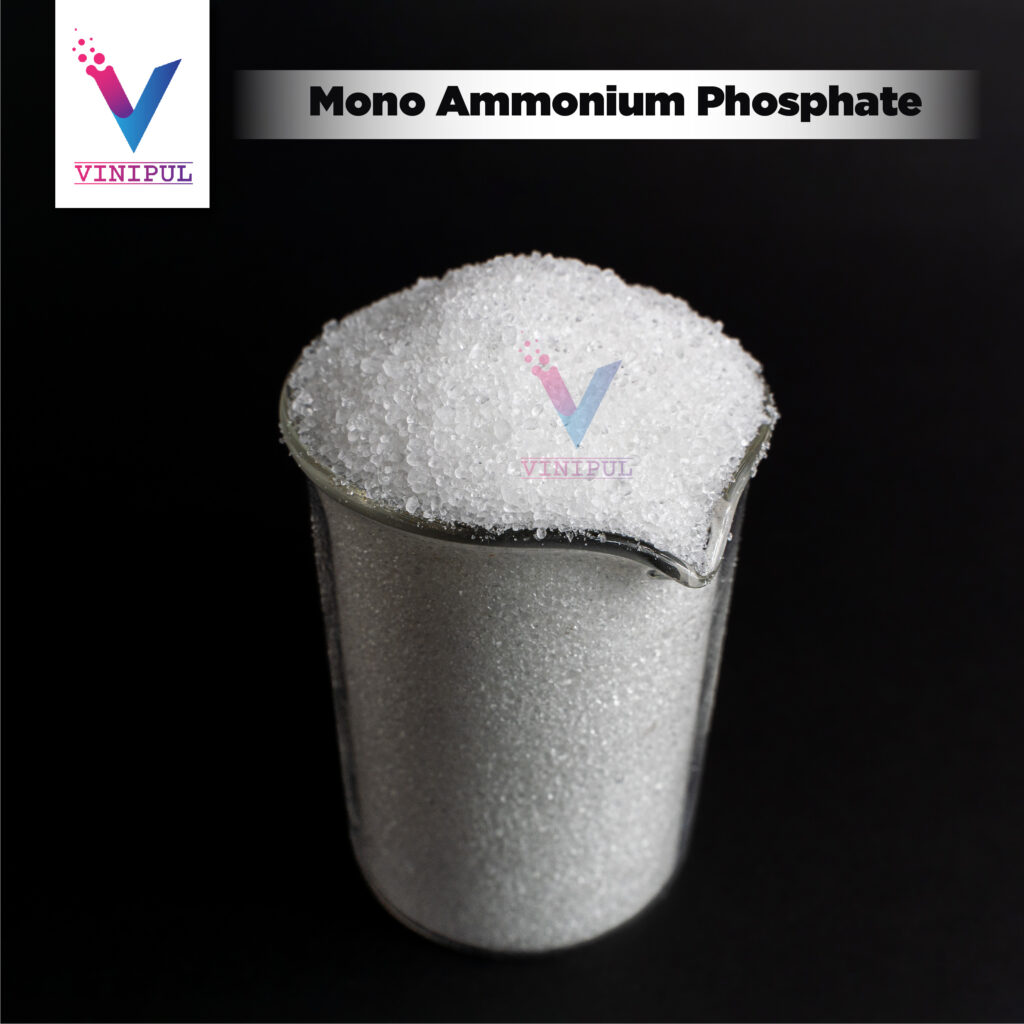
Mono Ammonium Phosphate
Mono Ammonium Phosphate, also known as MAP, is a compound composed of ammonium and phosphate ions. It is primarily used as a fertilizer in agriculture due to its high phosphorus content. It provides essential nutrients for plant growth.
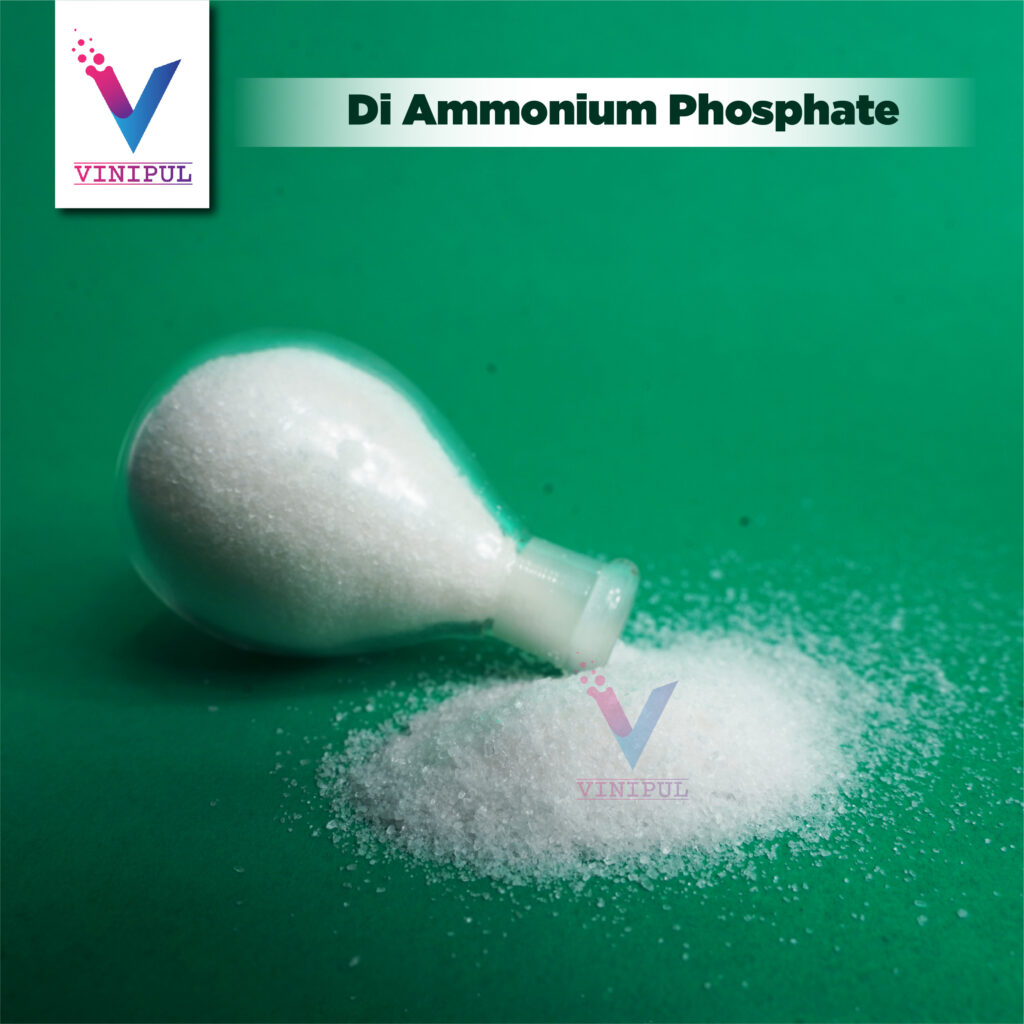
Di Ammonium Phosphate
Di Ammonium Phosphate, also known as DAP, is another compound composed of ammonium and phosphate ions. Like MAP, it is widely used as a fertilizer in agriculture. It contains both nitrogen and phosphorus, which are vital for plant development.
Sodium Tripolyphosphate Manufacturing Process
The manufacturing process of Sodium Tripolyphosphate involves several steps to produce this versatile compound. Firstly, a sodium compound such as soda ash (Na2CO3) or caustic (NaOH) is reacted with either wet process phosphoric acid or furnace process phosphoric acid. This reaction leads to the formation of a reaction mixture containing monosodium phosphate (NaH2PO4) and disodium phosphate.
In this process, the choice of sodium compound and phosphoric acid source depends on the specific requirements and production conditions. Wet process phosphoric acid is derived from phosphate rock and is commonly used in the production of Sodium Tripolyphosphate. Furnace process phosphoric acid, on the other hand, is obtained through the combustion of elemental phosphorus and is also utilized in certain manufacturing processes.
The resulting reaction mixture, containing monosodium phosphate and disodium phosphate, undergoes further processing to transform it into Sodium Tripolyphosphate. This involves the addition of specific reactants and controlled conditions to facilitate the chemical conversion. The precise details of these subsequent steps may vary depending on the manufacturer’s proprietary processes and equipment.
Once Sodium Tripolyphosphate is obtained, it serves as a valuable component in a wide range of domestic and industrial products, with detergents being one of the primary applications. Its ability to sequester calcium and magnesium ions makes it effective in water softening and improving the cleaning properties of detergents. Sodium Tripolyphosphate is also utilized in various other industries, including food processing, water treatment, and ceramics, where its unique properties contribute to the desired functionalities of the final products.
Is Sodium Tripolyphosphate Safe
Sodium Tripolyphosphate (STPP) is commonly used as a food additive and is generally regarded as safe for consumption. However, it is important to note that excessive ingestion of large amounts of the product can potentially be toxic and should be avoided. When used as a food additive, Sodium Tripolyphosphate serves various purposes such as a preservative, pH regulator, and emulsifier. It is commonly employed in processed foods, including seafood, meats, and canned products, to enhance their texture, moisture retention, and shelf life.
Although the consumption of foods containing reasonable levels of Sodium Tripolyphosphate is considered safe, it is crucial to adhere to recommended dietary guidelines and avoid excessive intake. As with any food additive or ingredient, moderation and responsible consumption practices are key to maintaining a balanced and healthy diet. It is worth mentioning that regulatory bodies, such as the Food and Drug Administration (FDA), closely monitor and regulate the use of Sodium Tripolyphosphate in food products to ensure it meets safety standards and does not pose any significant risks to consumers when used within approved limits.
What type is sodium tripolyphosphate?
Sodium tripolyphosphate, with the chemical formula Na5P3O10, is an inorganic compound that serves as the sodium salt of the polyphosphate penta-anion. It finds extensive usage as a key ingredient in both domestic and industrial products, with a particular emphasis on its role in detergents.
In domestic settings, sodium tripolyphosphate is widely incorporated into various cleaning agents, including laundry detergents and dishwashing liquids. Its presence helps enhance the cleaning efficiency by assisting in the removal of stains, dirt, and grease from fabrics and surfaces. Additionally, it aids in preventing the redeposition of soil onto cleaned items, leading to improved overall cleanliness.
In industrial applications, sodium tripolyphosphate plays a crucial role as a versatile ingredient in manufacturing processes. It is utilized in the production of ceramics, where it acts as a dispersing agent and assists in controlling the viscosity of ceramic suspensions. Moreover, its sequestering and chelating properties make it useful in water treatment, metal surface treatment, and as a stabilizer in various chemical processes.
Is sodium tripolyphosphate an emulsifier?
Sodium Tripolyphosphate, in its white powder form, readily dissolves in water. It functions as a surfactant, exhibiting excellent emulsifying properties when it comes to lubricants and fats.
Industrial Applications
Sodium Tripolyphosphate (STPP) is widely used in various industrial applications due to its versatile properties. Some of the key industrial applications of Sodium Tripolyphosphate are:

Sodium tripolyphosphate uses in detergents and Cleaning Products
STPP is a common ingredient in laundry detergents, dishwashing detergents, and other cleaning products. It acts as a water softener, preventing the build-up of mineral deposits and enhancing the cleaning efficiency. STPP also helps in suspending dirt and preventing its redeposition on fabrics or surfaces.

Sodium tripolyphosphate uses in water treatment
In the field of water treatment, Sodium Tripolyphosphate is used as a sequestering agent. It helps to bind and control the levels of metal ions, such as calcium and magnesium, in water. By sequestering these metal ions, STPP prevents the formation of scale and reduces the potential for clogging in pipes and equipment.

Ceramic Industry
Sodium Tripolyphosphate finds applications in the ceramic industry as a fluxing agent. It reduces the melting point of ceramic materials during the firing process, facilitating the fusion of components and improving the flow properties of glazes. STPP helps in enhancing the strength, durability, and overall performance of ceramic products.

Textile Industry
STPP is used in the textile industry as a dispersing agent and dye bath conditioner. It aids in the even distribution of dyes and pigments, improving colour fastness and dye penetration. Sodium Tripolyphosphate also prevents the precipitation of metal ions in dye baths, resulting in better dyeing results and reduced staining.

Metal Treatment and Surface Coatings
Ferric Pyrophosphate is used as a catalyst or an additive in various industrial processes. It can be found in applications like metal surface treatment, electroplating, wastewater treatment, and chemical manufacturing.

Sodium tripolyphosphate uses in food
In the food industry, Sodium Tripolyphosphate is used as a food additive with functions such as emulsification, moisture retention, and texture improvement. Sodium tripolyphosphate in food is commonly used in processed meats, seafood, and canned products. STPP in food helps in improving the texture and juiciness of processed meats while preventing microbial growth and extending shelf life.
These are just a few examples of the industrial applications of Sodium Tripolyphosphate. Its unique properties make it a valuable ingredient in various industries, contributing to improved cleaning, processing, and manufacturing processes.
What is sodium tripolyphosphate used for?
Sodium Tripolyphosphate (STPP) finds diverse applications across various industries some of the common sodium tripolyphosphate uses includes:
- Surface Active Agents, Emulsifiers, and Water Softeners: STPP is utilized as a surface-active agent, providing excellent emulsifying properties. It is also employed as a water softener, preventing the build-up of mineral deposits in water-based systems. These applications are commonly found in industrial cleaners and detergent formulations.
- Adhesives and Sealant Chemicals: The chemical properties of STPP make it valuable in the production of adhesives and sealants. It acts as a binding agent, facilitating strong and durable bonds between different materials.
- Corrosion Inhibitors and Anti-Scaling Agents: STPP is effective in inhibiting corrosion and preventing the formation of scale in various industrial processes. Its use in water treatment systems and cooling towers helps protect equipment from corrosion and scaling, ensuring efficient operation.
- Detergents and Dyes: Sodium Tripolyphosphate is a key ingredient in detergent formulations, contributing to their cleaning efficiency. STPP in detergent aids in the removal of dirt, stains, and grease from fabrics and surfaces. STPP is also utilized in the dyeing industry as a dispersant and a buffering agent.
- Fillers and Intermediates: STPP is employed as a filler in the production of various materials, including ceramics and plastics. It enhances the physical properties and stability of the final products. Additionally, it serves as an intermediate chemical in the synthesis of other compounds.
- Adsorbents, Absorbents, and Bleaching Agents: Sodium Tripolyphosphate has adsorbent and absorbent properties, making it useful in applications such as water treatment and waste management. It is also utilized as a bleaching agent in industries such as textiles, paper, and pulp.
- Processing Aids in Petroleum Production: In the petroleum industry, STPP is used as a processing aid to improve the performance and efficiency of various processes, including drilling, extraction, and refining of petroleum products.
- Machinery Plating Agents and Surface Treating Agents: STPP is applied as a plating agent and surface treating agent in machinery and equipment manufacturing. It helps enhance the durability, corrosion resistance, and appearance of metal surfaces.
- Solids Separation Agents and Solvents: Sodium Tripolyphosphate is employed as a solids separation agent in various industrial processes, aiding in the separation of solids from liquids. Additionally, it can serve as a solvent for cleaning and degreasing applications.
Overall, Sodium Tripolyphosphate demonstrates its versatility and importance across numerous industries, playing vital roles in cleaning, adhesion, corrosion prevention, water treatment, and various manufacturing processes.
Where to buy Sodium Tripolyphosphate?
Vinipul Chemicals Pvt. Ltd is a renowned company specializing in the manufacturing, supplying, and exporting of Sodium Tripolyphosphate (STPP) and other chemicals. With a strong reputation in the industry, Vinipul Chemicals Pvt. Ltd has established itself as a trusted source for high-quality chemical products. As a reputed sodium tripolyphosphate manufacturers, we are committed to ensuring the utmost precision and accuracy in the composition of its chemicals. The company employs advanced manufacturing techniques and state-of-the-art equipment, adhering to international industry standards. This dedication to quality control guarantees that customers receive Sodium Tripolyphosphate and other chemicals of exceptional purity and consistency.
Vinipul Chemicals Pvt. Ltd understands the diverse needs of its clients and offers Sodium Tripolyphosphate with various specifications and grades to cater to different industries. The company’s products, including STPP, are known for their fine quality, precise composition, and long shelf life, making them highly sought after in the market. As one of the prominent sodium tripolyphosphate suppliers, Vinipul Chemicals Pvt. Ltd ensures efficient and timely delivery of its products to customers worldwide. The company has a well-established distribution network and strong logistics capabilities, enabling it to reach customers in different regions with ease.
With its commitment to excellence, Vinipul Chemicals Pvt. Ltd has earned the trust and loyalty of a wide range of industries, including detergent manufacturing, water treatment, adhesives, and more. The company’s customer-centric approach, combined with its extensive knowledge and expertise in the chemical industry, sets us apart as a reliable partner for all chemical needs.
FAQ's
In regulated quantities, Sodium Tripolyphosphate is considered safe for consumption. It is commonly used as a food additive and is approved by regulatory authorities in many countries.
STPP functions as a water softener in detergents, preventing the formation of mineral deposits and enhancing the cleaning efficiency of the product.
Yes, Sodium Tripolyphosphate is employed in water treatment processes to inhibit scale formation and reduce water hardness.
While STPP is generally safe when used appropriately, excessive release of phosphates from wastewater containing Sodium Tripolyphosphate can contribute to water pollution and promote algal blooms.
STPP is compatible with many chemicals commonly used in detergent formulations, making it a versatile ingredient for various cleaning products.
It is recommended to store Sodium Tripolyphosphate in a dry and well-ventilated area, away from direct sunlight and sources of heat. Proper packaging should be used to prevent moisture absorption.
Direct contact with Sodium Tripolyphosphate may cause mild skin or eye irritation. It is advisable to use appropriate personal protective equipment when handling the compound.
Sodium Tripolyphosphate is occasionally used in food preservation applications, where it can help maintain the texture and quality of certain processed foods.
The use of Sodium Tripolyphosphate is subject to regulations and guidelines set by regulatory authorities in different countries. It is important to comply with local regulations and follow recommended usage levels.
Yes, Sodium Tripolyphosphate is commonly used in ceramic production as a fluxing agent to lower the melting point of ceramics and improve their properties.
STPP has emulsifying properties, allowing it to disperse and stabilize oil and water mixtures, making it useful in various applications, including lubricants and food products.
Yes, Sodium Tripolyphosphate is widely available in the market, and many chemical suppliers and distributors such as Vinipul Chemicals offer it in various grades to cater to different industries’ requirements.
While STPP is not commonly used in cosmetics or personal care products, it is always recommended to consult the specific regulations and guidelines for these industries before considering its use.
Market Area
We supply and exports Sodium Tripolyphosphate in all parts of the world such as
Sodium Tripolyphosphate in Africa Countries
South Africa , Nigeria, Kenya, Ghana, Ethiopia, Tanzania, Algeria, Angola, Benin, Botswana, Burkina Faso, Burundi, Cabo Verde, Cameroon, Central African Republic (CAR), Chad, Comoros, Democratic Republic of the Congo, Côte d’Ivoire, Djibouti, Egypt, Equatorial Guinea, Eritrea, Gabon, Gambia, Guinea, Guinea-Bissau, Lesotho, Liberia, Libya, Madagascar, Malawi, Mali, Mauritania, Mauritius, Morocco, Mozambique, Namibia, Nigeria, Rwanda, Sao Tome and Principe, Senegal, Seychelles, Sierra Leone, Somalia, South Sudan, Sudan, Swaziland, Togo, Tunisia, Uganda, Zambia, Zimbabwe.
Sodium Tripolyphosphate in Gulf Countries
Oman, Qatar, Kuwait, Saudi Arabia, Dubai, Bahrain, Iran, United Arab Emirates
Sodium Tripolyphosphate in Asia Countries
Afghanistan, Armenia, Azerbaijan, Bahrain, Bangladesh, Bhutan, Brunei, Cambodia, China, Cyprus, Georgia, India, Indonesia, Iran, Iraq, Israel, Japan, Jordan, Kazakhstan, Kuwait, Kyrgyzstan, Laos, Lebanon, Malaysia, Maldives, Mongolia, Myanmar (Burma), Nepal, North Korea, Oman, Pakistan, Palestine, Philippines, Qatar, Russia, Saudi Arabia, Singapore, South Korea, Sri Lanka, Syria, Taiwan, Tajikistan, Thailand, Timor-Leste, Turkey, Turkmenistan, United Arab Emirates (UAE), Uzbekistan, Vietnam, Yemen
We supply Sodium Tripolyphosphate in all parts of India.
Andhra Pradesh, Arunachal Pradesh, Assam, Bihar, Chhattisgarh, Goa, Gujarat, Haryana, Himachal Pradesh, Jammu & Kashmir, Jharkhand, Karnataka, Kerala, Madhya Pradesh, Maharashtra, Manipur, Meghalaya, Mizoram, Nagaland, Odisha, Punjab, Rajasthan, Sikkim, Tamil Nadu, Telangana, Tripura, Uttarakhand, Uttar Pradesh and West Bengal.
Note: – Please be advised that the information contained in this document is intended for illustrative purposes only. Due to variations in product grade, applications, industries, or uses, the accuracy of the information provided cannot be guaranteed. © Copyright 2023 © Vinipul Chemicals All Rights Reserved (Terms of Use). Reproduction of any material from this site is strictly prohibited without permission. Vinipul Chemicals products are exclusively sold through the company’s website. For precise product specifications and requirements, as well as advice on which products are best suited for your specific application needs, please contact us at business@vinipulchemicals.com Use Terms | Privacy.


